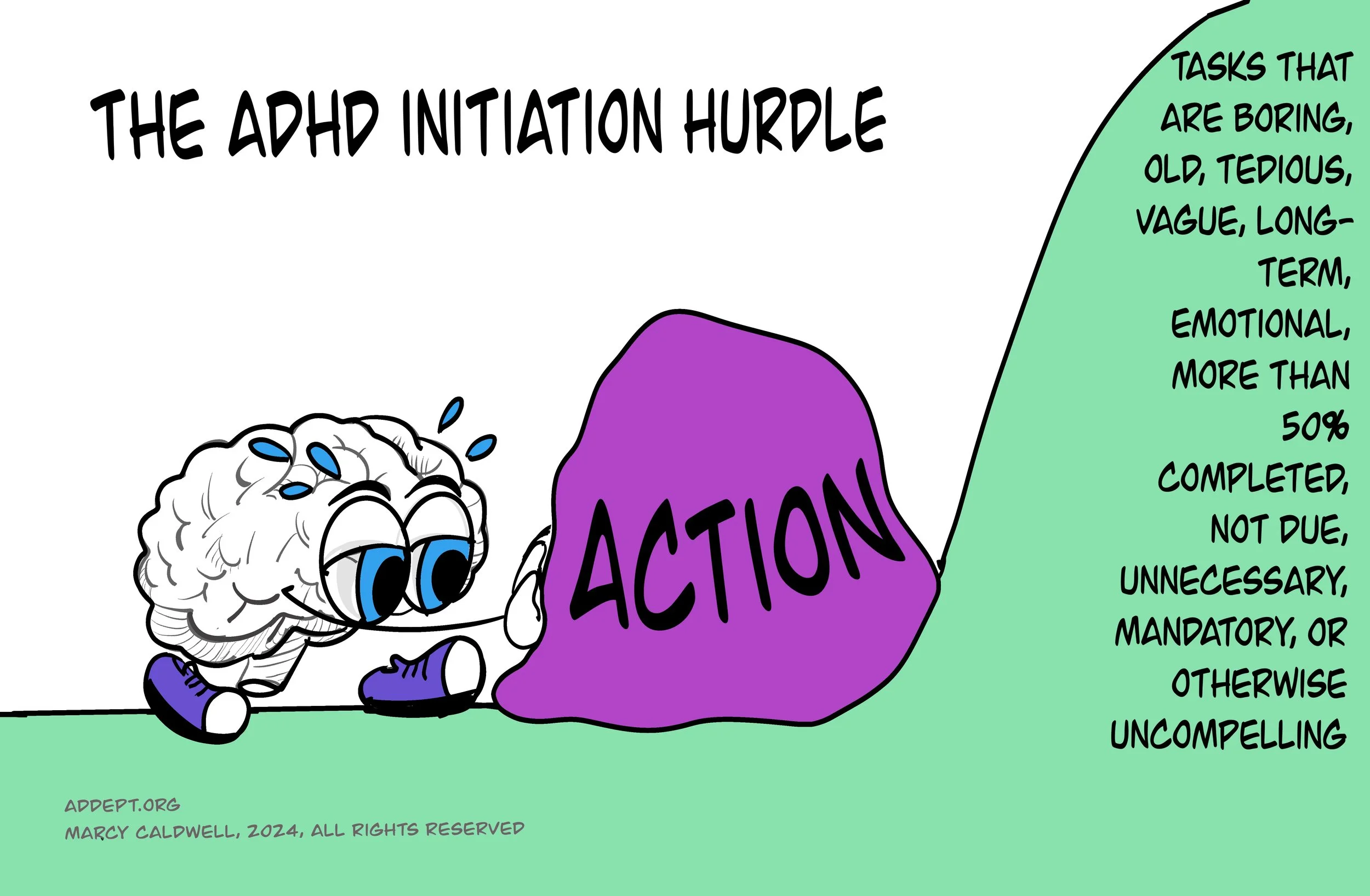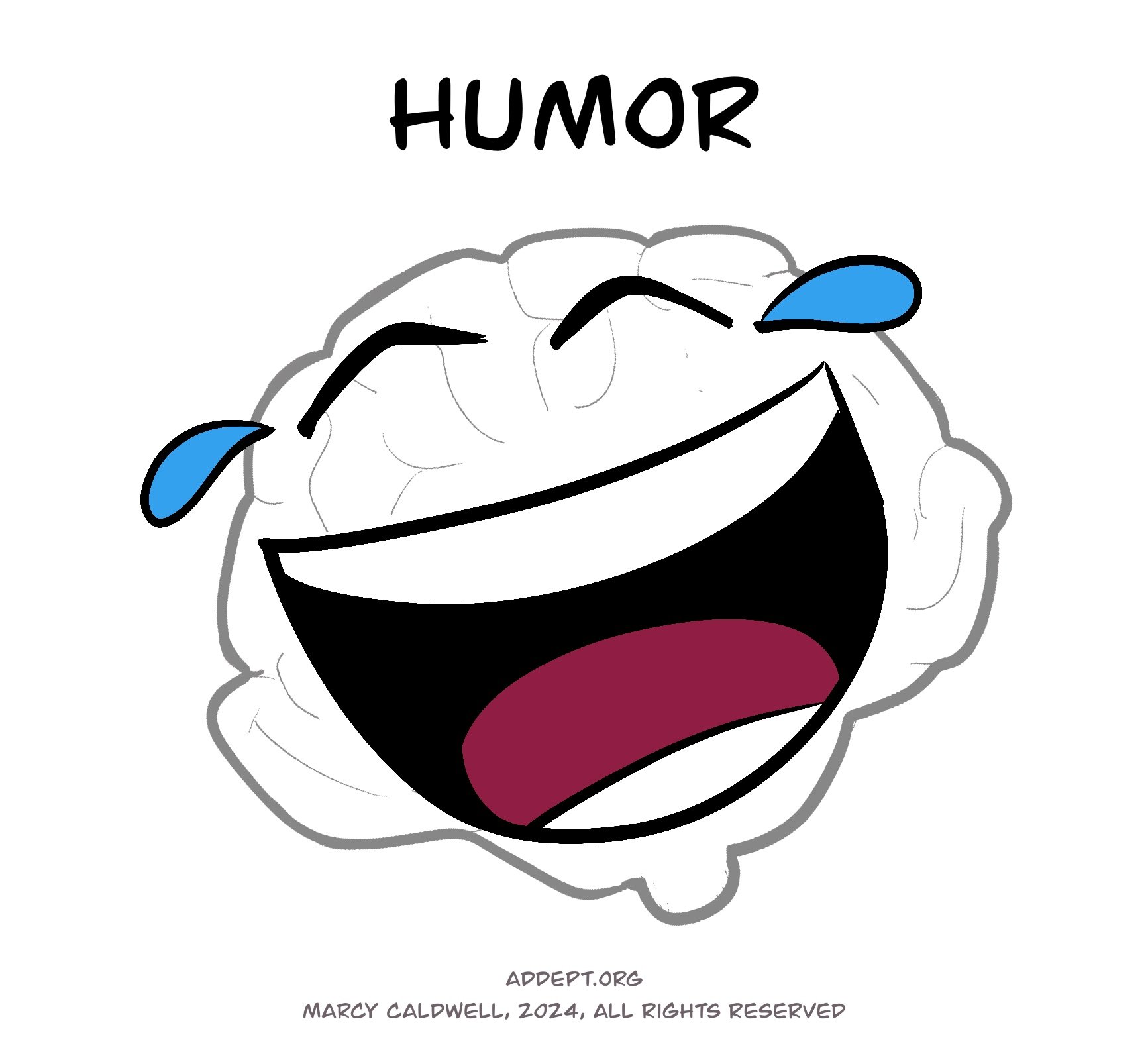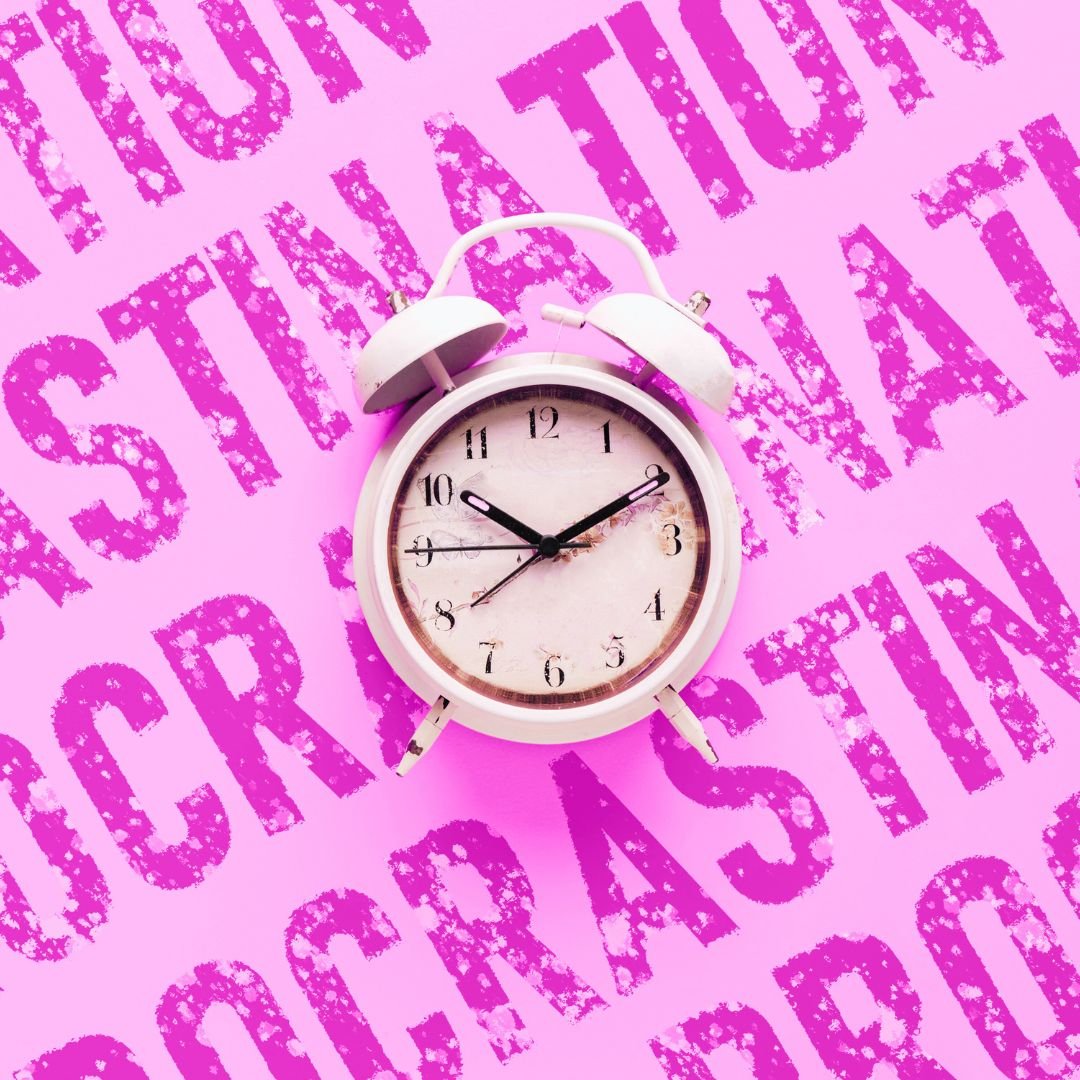The 5 things proven to motivate ADHD brains
[2024 Update]
That endless to-do list haunts you. Chores, errands, projects... all important, all neglected. You long for the sweet relief of checking things off, the surge of accomplishment... yet your brain fogs, your body resists, and a defiant voice within screams, "Nope!"
You know the drill: if you could just START, you'd gain momentum and feel better. Less anxiety, more pride.
So why the paralysis?
Getting started, for an ADHD brain, is like pushing a giant, lumpy boulder up a mountain.
It’s hard. It’s painful. And pretty much anything else is more compelling.
So, still, the boulder stays and undone remain the tasks.
Unless…
There is something really good driving it forward. Something that gets it going. Something that turns that uphill slog into a gentle, smooth, downhill slope that even the lumpiest of boulders can gently roll down with minimal effort.
Think you might have ADHD?
Take a free online assessment to find out.
(Takes 3 minutes)
TAKE THE QUIZThe Science Behind ADHD Motivation: A Dopamine Story
So why is it that ADHD brains struggle with such an initiation hurdle anyway?
Of course, like all things brain-related, there isn’t just one answer- it’s a complicated system. But let’s break it down:
Reward Deficiency Syndrome:
Picture this- our brain's reward system runs on dopamine, a feel-good chemical that motivates us to chase those wins. But for ADHD brains, it's like that reward system is playing hard to get. It takes a lot more dopamine to spark that "heck yeah, let's do this!" feeling. [1]
Delayed Un-gratification:
That anticipation buzz that fuels others to tackle long-term goals? Because of this reward system that’s playing hard to get- It's more like a faint whisper for ADHD brains. It's no wonder those distant deadlines seem less motivating![1]
Stimulation Seeking
So, what's an ADHD brain to do? Well, it often goes on a quest for quick dopamine hits. Novelty, thrills, instant gratification – these are the siren calls that promise a dopamine rush. But while these quick fixes feel good at the moment, they often lead to a rollercoaster of motivation, making it even harder to stay on track with those bigger goals. [1]
What Motivates an ADHD Brain?
Pressure
Pressure is the motivator we all carry around in our back pockets, ready to pull out as needed. It's the easiest to manufacture and one that you can rely on (well, most of the time).
Pressure is the paper due tomorrow morning, your boss calling for the report that was due three weeks ago, and your wife crying about a forgotten anniversary.
It's the most commonly used motivator because it's the easiest to manufacture. Don't feel like starting that project right now? Wait a few weeks- a few hours before it’s due, it's going to feel much more compelling.
How does pressure work?
When we feel pressure in any form, our bodies release dopamine and adrenaline in order to cope and sustain the stress. This dopamine then fuels our dopamine-hungry brains and turns on focus, making whatever that pressure-filled task is much more compelling. [2]
The 3 Types of Pressure:
Interpersonal pressure
This is the pressure put on you by other people—either because of their need, disappointment, or anger. It’s your husband's mounting frustration about the forgotten dry cleaning or your toddler's insistent tugging at the hem of your shirt while you desperately try to beat that next level of Candy Crush.
Time Pressure
This is the age-old favorite and the effective result of procrastination. Time pressure builds naturally when we wait until the night before the paper is due and hits us head-on with our desperate all-nighter before a big presentation. Time pressure allows the ADHD brain to zoom in on what is important and ignore all the rest.
Financial Pressure
Financial pressure keeps us accountable by putting pressure on our bank accounts. It’s the premise behind late fees and cancellation policies. It is, however, the least powerful pressure for the ADHD brain because it doesn’t respond nearly as well to punishment as it does to reward. That being said, if the financial pressure gets big and meaningful enough, it can kick the ADHD brain into gear pretty quickly.
Each form of pressure will happen naturally if you wait long enough. Let enough time pass, and April 15 is sure to come along; let that Amazon return your husband hanging out on the counter long enough, and your husband is sure to start bugging you and forget to pay the electric bill, and the late fees will start piling up. You don’t have to manufacture pressure because it will inevitably roll around. (But sneak peek, you CAN manufacture pressure to make it work better for you.)
Interest/Passion
What ADHDer hasn't heard (either from themselves or someone close to them) "Why can you [enter favorite activity here] but you can't do [enter boring/ repetitive/ seemingly pointless activity here]"?
It’s perplexing and endlessly frustrating.
You can get going, focus, and be completely engaged with the things that interest you- but switch that thing out with something that doesn't have some intrinsic pleasure or drive, and your brain’s train comes to a screeching halt.
Interest and passion release that ever-sought-after dopamine. They get the brain moving and drive it towards that interest. They turn the initiation hurdle—the thing that blocks our brains from starting—into a gentle speed bump.
A task that holds little interest, though?
That initiation hurdle might as well be a 2 story wall. The amount of energy it takes to scale feels close to impossible.
Competition
My husband, an avid cyclist, came in from a ride a few months ago looking extra worn out. When I asked him about his ride, he told me that on his way home, a 20-year-old guy passed him on a road bike.
Now, did my husband consider his own age or that he was riding a much slower, heavier mountain bike? No! Of course not- he powered up and chased after him- practically killing his 40-year-old body in the process.
Competition turns the ADHD brain on.
It gets it excited and active, and all of a sudden, the struggle is about winning rather than starting, effectively demolishing the initiation hurdle. So much so that a recent study found that ADHD brains not only perform better in competitive situations, they even generated more original ideas! [3]
Now, not everyone responds to competition. Several psychological factors can make competition grind even an ADHD brain to a screeching halt. So, if this doesn’t work for you, you are not alone. But for those brains that do respond, it can be a powerful motivator.
Novelty
There are few things more compelling than something shiny and new. I see it every day with my boys- they will, without a moment’s hesitation, put down their most prized possession in exchange for practically anything they haven't seen before.
Our brains are primed to explore novelty- it's part of what helps us learn and part of what keeps us safe.
The ADHD brain has this same draw towards the novel, but it is done with even greater zeal and abandon. Because novelty increases dopamine in our brains- and the dopamine-hungry ADHD brain? Well, that’s just too good to pass up!
In fact, research shows, when we look at fMRIs of ADHD and neurotypical brains, that ADHD brains have much more activation and excitement when they encounter novelty than neurotypical brains do. [4]
So, new relationships, new projects, new ideas, and new tasks— they fire up the ADHD like few other things can.
Unfortunately, novelty obviously wears off. So, you need to find ways to manufacture more momentum after the newness gets you started. But getting started? That is more than half the battle.
Humor
Now, this one’s a wild card and one that is still in its infancy in the research. But it’s something we see so often in our clinical work that it bears mentioning.
Research suggests that, on average, ADHD brains are more funny than neurotypical brains. [5] (Ok- they didn’t exactly say that- they said it in much more research-ey terms, “higher humoral acuity- but, yeah- ADHD brains are funny!).
And because humor is a wonderful blend of social connection and creativity- both of which are extremely rewarding for ADHD brains, it makes sense that for the people for whom humor is a strength, that surge you get when a joke lands, or the sense of well-being you experience when amused would be a great driver of motivation.
Knowing what motivates your ADHD brain helps you get into action and avoid the things that will naturally take your attention. Check out our next article on to use the 4 pillars of motivation to get you going when you need to and not when you don't.
-
Volkow, N. D., Wang, G., Newcorn, J. H., Kollins, S. H., Wigal, T., Telang, F., … & Swanson, J. M. (2010). Motivation deficit in adhd is associated with dysfunction of the dopamine reward pathway. Molecular Psychiatry, 16(11), 1147-1154. https://doi.org/10.1038/mp.2010.97
Balakrishnan, V., Vaidyanathan, K., Saraswathy, L. A., Sundaram, K. R., & Kumar, H. (2011). Impact of integrated amrita meditation technique on adrenaline and cortisol levels in healthy volunteers. Evidence-Based Complementary and Alternative Medicine, 2011, 1-6. https://doi.org/10.1155/2011/379645
Boot, N., Nevicka, B., & Baas, M. (2017). Creativity in adhd: goal-directed motivation and domain specificity. Journal of Attention Disorders, 24(13), 1857-1866. https://doi.org/10.1177/1087054717727352
Weghorst, L., Rolffs, M., & Konrad, K. (2014). Novelty seeking and reward anticipation in attention deficit/hyperactivity disorder (ADHD). Frontiers in Human Neuroscience, 8, 832.
Gonzalez-Carpio, G., Serrano, J. P., & Nieto, M. (2017). Creativity in children with attention deficit hyperactivity disorder (adhd). Psychology, 08(03), 319-334. https://doi.org/10.4236/psych.2017.83019
Ready to shift from
meltdown to mastery?
This online course has been designed specifically to help teach the strategies ADHD brains need to help them move from overwhelm and meltdowns to confident emotional mastery.
Want to know more about
thriving with ADHD?
Check out these other articles:


















ADHD and Shame: The 2 magic keys to reversing a shame spiral